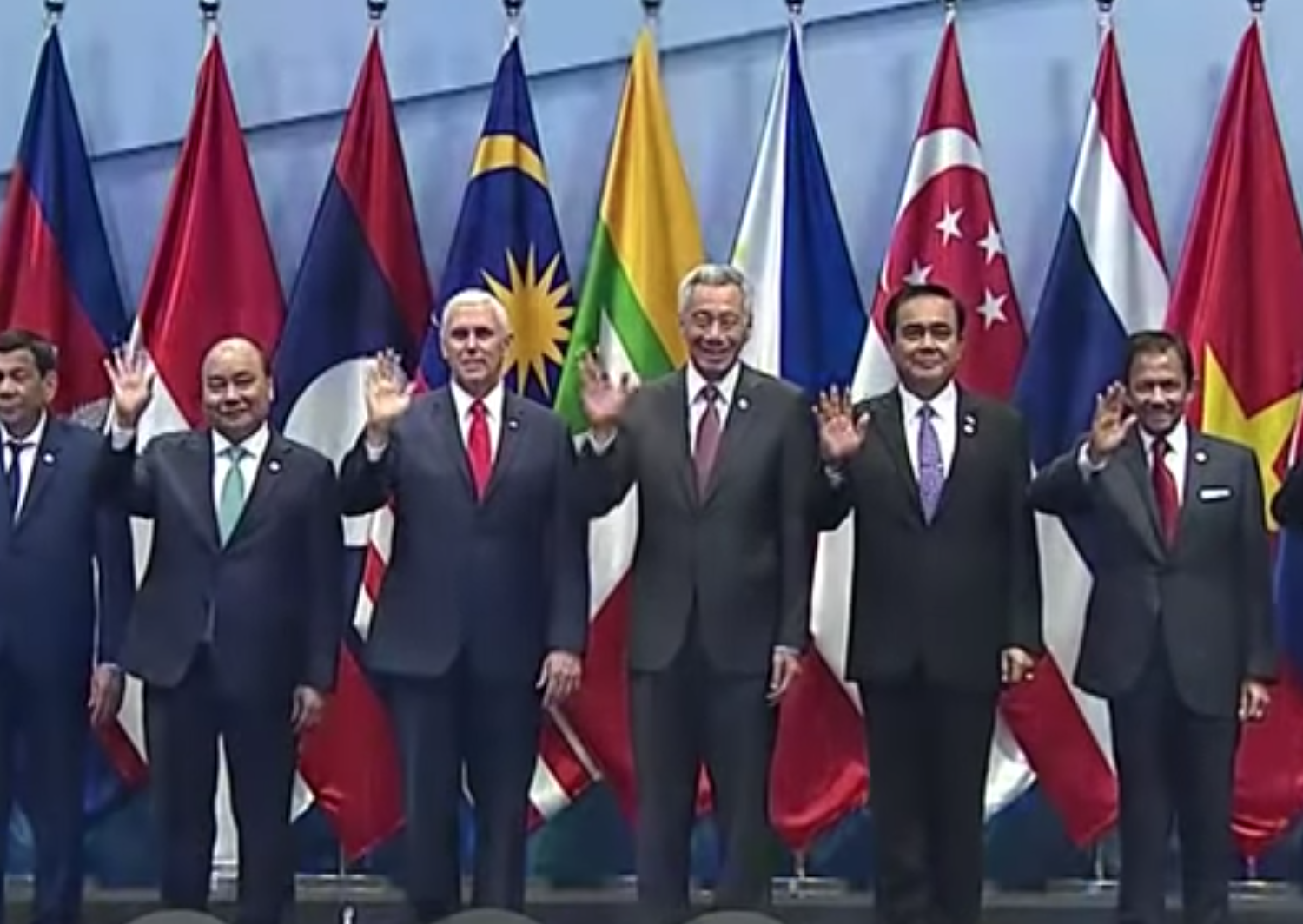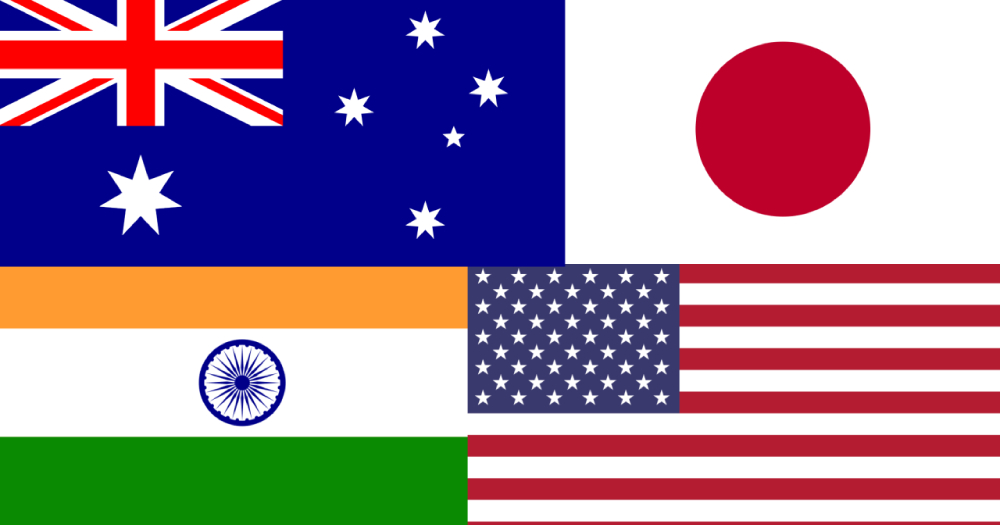Senior officials from the "Quad" -- Australia, India, Japan and the United States -- met on the sidelines of the Asean Summit in Singapore on Thursday (Nov. 15).
Described as "potentially the most important meeting in Asia this week" by Bloomberg, it was said to have been revived last year as a "counterweight to China's growing economic and military might".
Thursday's meeting was only the third one to be convened.
Started more than a decade ago
The grouping first started as the "Quadrilateral Security Dialogue" almost 15 years ago in the aftermath of the 2004 Indian Ocean earthquake and tsunami.
The four countries initially came together in order to provide humanitarian relief to the victims.
Subsequently, they held their first meeting in 2007, and took part in joint naval exercises, which sparked protests from China.
The grouping then broke up after Kevin Rudd took office as Australia's prime minister in 2007.
China has since pursued a foreign policy that was perceived by some as being unnecessarily assertive, such as increasing its military build-up in the South China Sea and setting up an overseas military base in Djibouti.
Does not target any power
When the "Quad" was first formed, China sent formal protests to the four countries.
Exercise Malabar conducted by Australia, India, Japan and the U.S. in the Bay of Bengal in September 2007 also prompted China to express its concern.
In the defence papers issued by all four countries, China was labelled as a potential threat, according to BBC.
The naval exercises were said by analysts to be an attempt to keep China's growing power in check, according to BBC. The countries involved denied this.
Nevertheless, "Quad" members tried to reassure China by saying that their "strategic partnership" was only meant for maintaining regional security, and that they do not target any power in particular, the BBC reported.
They also maintain that it is a grouping that is open to other countries as well.
China not happy with the grouping
China's Foreign Minister Wang Yi told the press in March this year in response to a question on the "Indo-Pacific strategy" that he hoped the four countries "mean what they say and their action will match their rhetoric".
Wang blasted the "Indo-Pacific strategy" pursued by the "Quad" as well, saying it is nothing more than "headline-grabbing" idea:
"They are like the sea foam in the Pacific or Indian Ocean: they may get some attention, but soon will dissipate."
The U.S. shift away from its previous "Asia-Pacific" strategy in late 2017 to its current "Indo-Pacific" strategy under the Trump administration was seen by many analysts as a means to contain China's rise.
Naturally, it is not well-received by the Chinese.
According to Bloomberg, on Tuesday (Nov. 13), U.S. National Security John Bolton said to reporters in Singapore that the U.S. will continue to pursue a "free and open Indo-Pacific" and that the "Quad" can be part of the strategy in the future.
Pence warned China
While here in Singapore to attend the 6th Asean-US Summit on behalf of U.S. President Donald Trump, U.S. Vice President Mike Pence sent a thinly veiled message to China.
 Pence at the 6th Asean-US Summit. (Screenshot via Ruptly/YT)
Pence at the 6th Asean-US Summit. (Screenshot via Ruptly/YT)
On Thursday (Nov. 15), he said that the leaders present "all agree that empire and aggression have no place in the Indo-Pacific":
"The U.S. has taken decisive action to promote this vision across the region.
With the focus on prosperity, security and shared principles, we will continue to work with [Asean] to advance this vision across the Indo-Pacific."
He continued:
"Let me be clear though. Our vision for the Indo-Pacific excludes no nation.
It only requires that every nation treat their neighbours with respect, and respect the sovereignty of our nations and international rules and order."
Although he did not mention any country, his comments came at a time of increased tension between the U.S. and China due to a near collision between their warships in the South China Sea back in September.
[related_story]
If you like what you read, follow us on Facebook, Instagram, Twitter and Telegram to get the latest updates.
